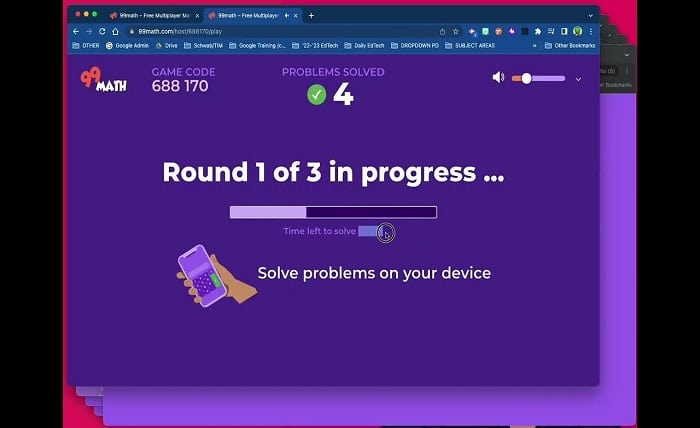99 Math Hacks: Supercharge Your Math Skills

Introduction
Math, often perceived as a daunting subject, can be transformed into an enjoyable and efficient learning experience. By incorporating a variety of techniques and strategies, you can significantly improve your math skills and achieve academic success. In this comprehensive guide, we will explore 99 math hacks that will revolutionize your approach to numbers and equations.
99 Math Hacks: A Comprehensive Guide
Mental Math Mastery
- The Power of Estimation: Learn to round numbers to the nearest ten, hundred, or thousand to quickly estimate answers.
- Multiplying by 9: A Simple Trick: Multiply any number by 9 by multiplying it by 10 and then subtracting the original number.
- Squaring Two-Digit Numbers Ending in 5: Square the tens digit, add 25, and then multiply the result by 100.
Algebraic Alchemy
1.FOIL Method for Binomial Multiplication: Remember 99 Math Hacks the acronym FOIL (First, Outer, Inner, Last) to multiply two binomials.
2.Factoring Quadratics: A Step-by-Step Guide: Break down quadratic expressions into simpler factors using techniques like the AC method or the grouping method.
3.Solving Equations: A Systematic Approach: Master the art of isolating variables by applying inverse operations to both sides of an equation.
Geometric Genius
1.Pythagorean Theorem: A Timeless Classic: Understand the relationship between the sides of a right triangle using the formula a² + b² = c².
2.Area and Perimeter Formulas: A Quick Reference: Memorize the formulas for calculating the area and perimeter of various shapes, such as rectangles, triangles, and circles.
3.Trigonometry: A Gateway to Higher Math: Explore the trigonometric functions sine, cosine, and tangent, and their applications in solving right triangles.
Calculus Corner
1.Limits: The Foundation of Calculus: Grasp the concept of limits to understand the behavior of functions as they approach certain values.
2.Derivatives: The Rate of Change: Learn how to calculate derivatives to determine the slope of a curve at any point.
3.Integrals: The Area Under the Curve: Explore the concept of integrals to find the area between a curve and the x-axis.
Probability and Statistics
1.Basic Probability: The Science of Chance: Understand the fundamental concepts of probability, such as sample space, events, and probability calculations.
2.Statistical Measures: Describing Data: Calculate measures of central tendency (mean, median, mode) and dispersion (range, variance, standard deviation) to analyze data sets 99 Math Hacks.
3.Normal Distribution: The Bell Curve: Learn about the properties of the normal distribution and its applications in various fields.
Number Theory Nuggets
1.Prime Numbers: The Building Blocks of Arithmetic: Identify prime numbers and understand their role in number theory.
2.Divisibility Rules: Quick Checks: Use divisibility rules to determine if a number is divisible by 2, 3, 4, 5, 6, 9, or 10.
3.Modular Arithmetic: Clock Arithmetic: Explore the concept of modular arithmetic and its applications in cryptography and computer science.
Financial Fitness
1.Simple Interest: The Basics of Borrowing and Lending: Calculate simple interest to understand the cost of borrowing or the earnings from investments.
2.Compound Interest: The Power of Time: Learn how compound interest works and its impact on long-term investments.
3.Budgeting Basics: Managing Your Money Wisely: Create a budget to track your income and expenses and make informed financial decisions.
Real-World Applications
1.Math in Nature: Fractals and Fibonacci Sequence: Discover the mathematical patterns found in nature, such as the Fibonacci sequence and fractal geometry.
2.Math in Art: Golden Ratio and Perspective: Explore the mathematical principles underlying artistic techniques, such as perspective and the golden ratio.
3.Math in Music: Rhythm and Harmony: Understand the mathematical concepts behind musical scales, chords, and rhythms.
Study Tips and Tricks
1.Effective Practice: Consistent Effort Pays Off: Develop a consistent practice routine to reinforce your math skills.
2.Active Learning: Engage with the Material: Actively participate in class discussions, solve problems, and work on practice exercises.
3.Seek Help When Needed: Don’t Be Afraid to Ask Questions: Don’t hesitate to ask your teacher, classmates, or a tutor for help when you encounter difficulties.
Math Anxiety: Overcoming the Fear
1.Positive Mindset: Believe in Yourself: Cultivate a positive attitude towards math and believe in your ability to succeed.
2.Break Down Complex Problems: Divide and Conquer: Break down complex problems into smaller, more manageable steps.
3.Practice Mindfulness: Reduce Stress and Anxiety: Practice mindfulness techniques, such as deep breathing and meditation, to reduce math anxiety.
Math Games and Puzzles: Fun Learning
1.Sudoku: A Brain-Training Puzzle: Solve Sudoku puzzles to improve your logical reasoning and problem-solving skills.
2.Rubik’s Cube: A Challenging Puzzle: Master the Rubik’s Cube to enhance your spatial reasoning and problem-solving abilities.
3.Math Trivia: Fun Facts and Anecdotes: Learn interesting facts and anecdotes about famous mathematicians and mathematical discoveries.
Technology Tools for Math Learning
1.Math Apps: Mobile Learning on the Go: Utilize math apps to practice skills, solve problems, and explore interactive concepts.
2.Online Math Courses: Flexible Learning Opportunities: Enroll in online math courses to learn at your own pace and access a wealth of resources.
3.Math Software: Powerful Tools for Problem-Solving: Use math software to perform complex calculations, visualize mathematical concepts, and simulate real-world scenarios.
Conclusion
By incorporating these 99 math hacks into your learning routine, you can significantly enhance your math skills, boost your confidence, and achieve academic success. Remember, math is a subject that rewards consistent effort and a positive mindset. Embrace the challenges, celebrate your achievements, and enjoy the journey of mathematical discovery.
FAQs
- How can I improve my math skills quickly? Consistent practice, active learning, and seeking help when needed are key strategies for improving math skills quickly.
- What are some effective ways to overcome math anxiety? Positive mindset, breaking down complex problems, and practicing mindfulness techniques can help reduce math anxiety.
- What are some fun ways to learn math? Math games, puzzles, and interactive online tools can make learning math enjoyable.
- How can I apply math to real-world situations? Math is used in various fields, such as science, engineering, finance, and art. By understanding the real-world applications of math, you can appreciate its relevance and importance.
- What are some tips for studying for a math exam? Create a study schedule, practice problems, review key concepts, and get adequate sleep before the exam.




